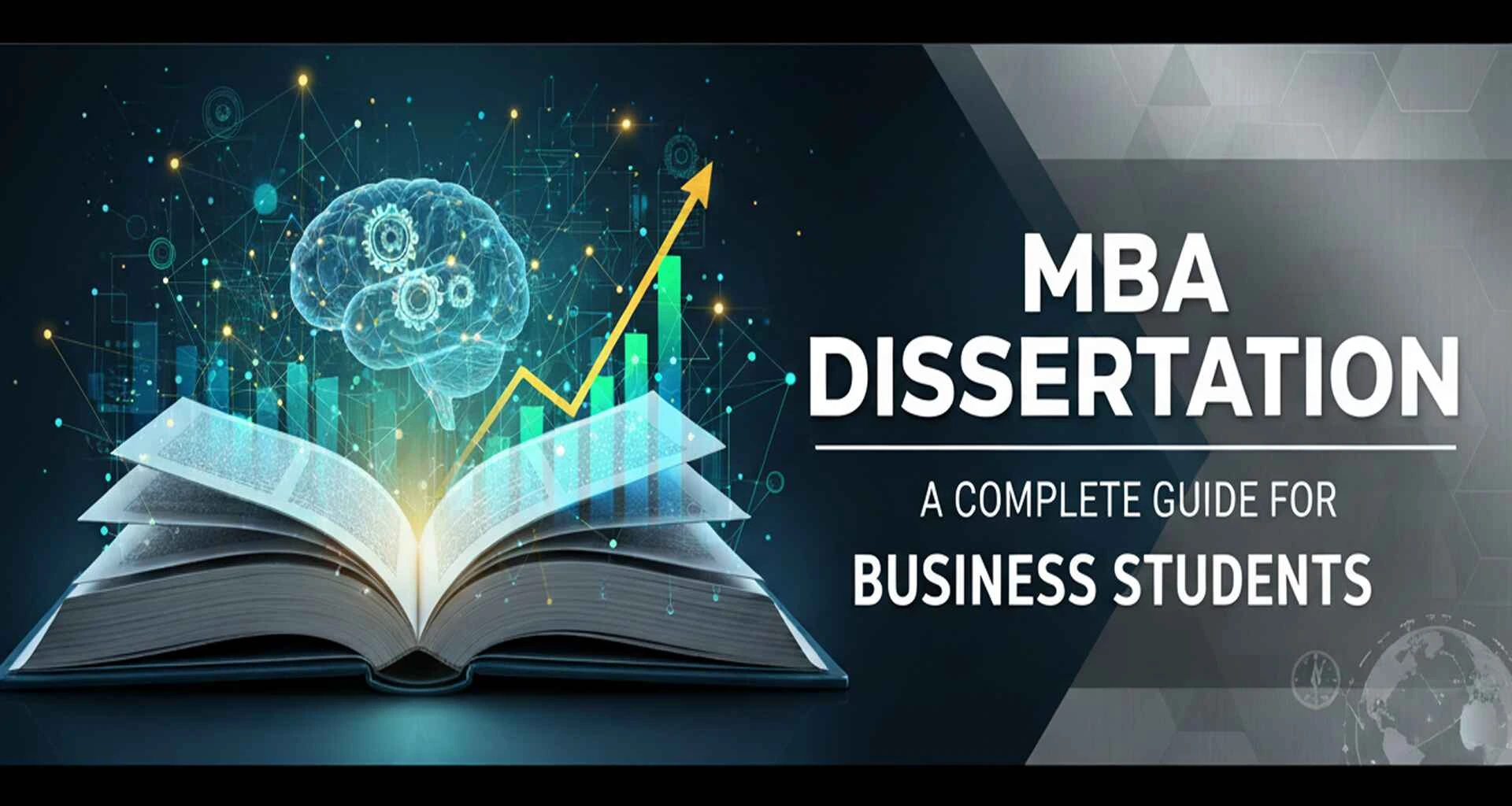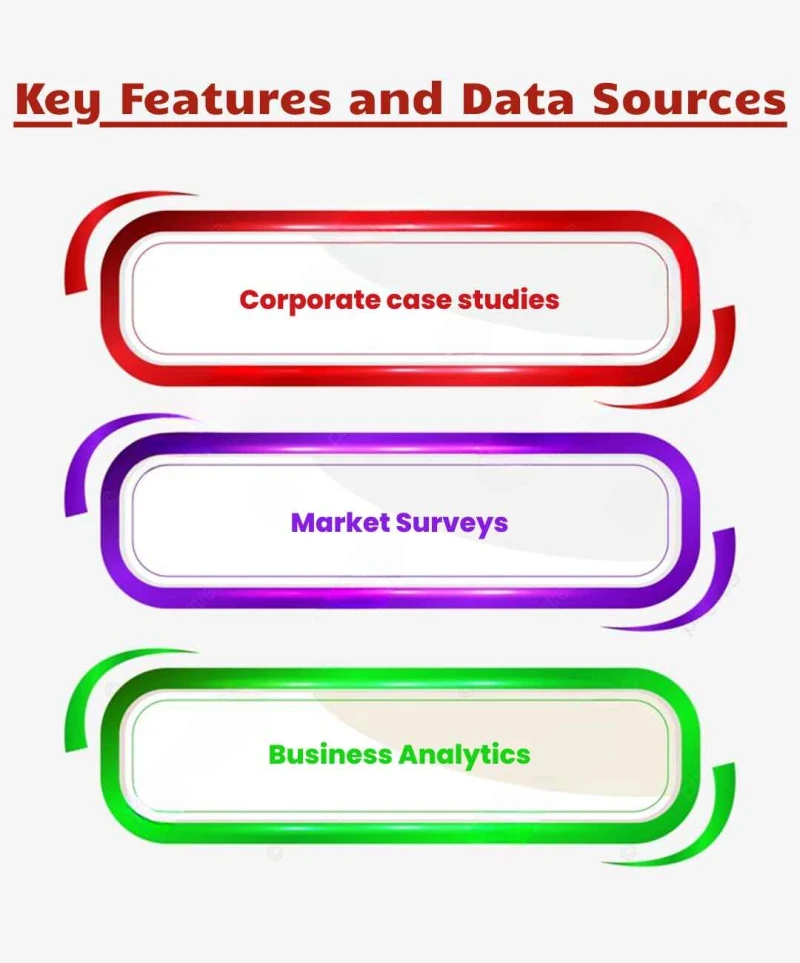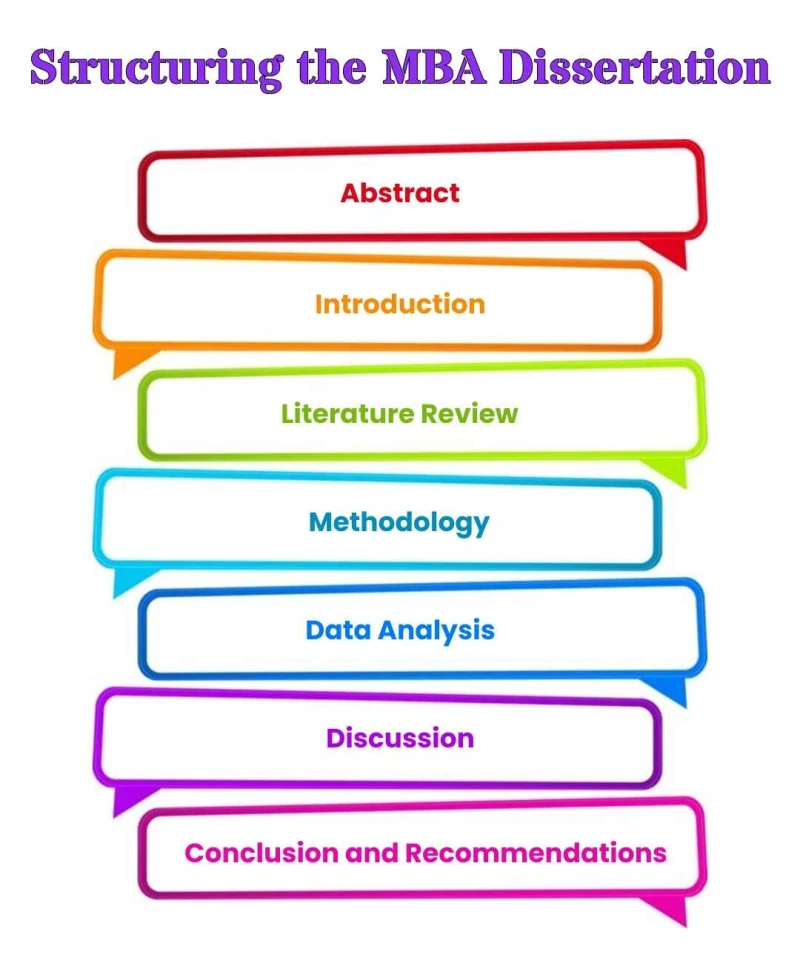Purposive Sampling in a Thesis: Don’t Write Without Reading This
Don’t write your methodology without reading this. Learn why purposive sampling is essential for case studies and how to define your inclusion criteria. Url:purposive-sampling

Esther F
An MBA dissertation is one of the most significant academic achievements for business students. It is also the academic requirement that showcases students' capacity to translate theoretical knowledge into practical business issues. By this genuine process of research, students acquire analytical, managerial and strategic decision-making skills, while balancing the knowledge of practical concepts of business.
In the majority of MBA courses, the dissertation is central to developing a student's professional competence, which may assist in closing the gap between academic learning and company practice.
It is possible to accomplish an MBA dissertation by having meticulous planning, a research focus that is clearly understood and the capacity to critically analyse information to develop actionable knowledge.
Completing an MBA dissertation allows business students to tackle real-world challenges while integrating the knowledge gained in the practical process of the course. Dissertations are an essential factor in business education because they encourage critical thinking, problem solving and application of academic concepts.
The main benefits of an MBA dissertation are the development of key learning outcomes, where students enhance their analytical skills, learning how to interpret complex data into trends. They improve managerial abilities as they plan and execute a structured research project. . In addition, MBA dissertations help refine strategic decision-making skills, enabling students to recommend solutions that can influence business performance and outcomes.
Moreover, an MBA dissertation effectively connects academic theory with real-world business practice. By examining case studies, conducting market research, or analysing company data, students gain practical insights that bring real business challenges. This fact ensures that graduates are equipped not only with knowledge but also with skills which enable informed business decisions.
MBA dissertations stand out because they prioritise practical application and pure theory. It focuses only on solving real-world challenges while linking academic concepts to managerial and strategic decision-making.

It involves analysing real company scenarios, uncovering both successful and failed strategies, where students try to understand practical business challenges.
Market Surveys collect data from target audience or consumers, focusing on identifying trends, customer preferences, industry gaps and supporting evidence.
Business Analytics applies analytical tools to measure performance, evaluate financial and operational metrics, and generate actionable business insights.
|
Aspect |
MBA Dissertation |
Other Subject Dissertations (Engineering, Social Sciences, Pure Sciences) |
|
Focus |
Practical application and real-world business relevance |
Theoretical exploration, experimental research, or abstract concepts |
|
Data Sources |
Corporate case studies, market surveys, business analytics |
Lab experiments, simulations, historical data, surveys for theoretical purposes |
|
Objective |
Develop strategy, management, and decision-making insights |
Contribute to academic knowledge, prove theories, or test models |
|
Example |
MBA finance dissertation analyses real corporate data and investment strategies |
An economics dissertation may focus on theoretical economic models or historical financial trends |
|
Outcome |
Actionable insights for business and professional use |
Primarily academic contributions, with less immediate business application |
An MBA finance dissertation helps us to analyse the real corporate data and evaluate practical investment strategies to provide actionable business insights.
In contrast, an economic dissertation typically focuses on theoretical methods or historical finance trends with academic emphasis.
Selecting the correct topic is a critical component of writing an effective MBA dissertation. The topic does not just direct your research, but also determines the relevance and impact of your findings, both academically and professionally. A good topic provides the ground for an orderly, focused, and high-level dissertation.
The first thing is to choose a fitting and researchable business issue. Choose an issue of substance and scope for in-depth analysis, but with realistic lessons that can influence real business choices.
The other important area is aligning your topic with your MBA focus area, whether it is HR, Marketing, Finance, Operations, or some other area. This makes sure that you are drawing from your subject matter expertise, establishing expertise, and injecting credibility in your study.
Finally, it is important to relate your topic to new business trends and industry needs. Choosing a topic that reflects what is happening in the current market or addresses critical industry concerns ensures your dissertation is practical and applicable.
Common mistakes in choosing a dissertation topic include picking one that is too broad or too narrow, ignoring your expertise, and overlooking industry trends. Avoiding these ensures your study adds to academic knowledge and offers practical solutions for businesses and employers.
By doing so, your study not only adds to academic knowledge but also presents viable solutions for companies and future employers. You can explore relevant MBA dissertation topics on our blog to guide your research and ensure it aligns with both academic and industry priorities.
Digital Transformation and the Metaverse
Geopolitical Unpredictability and Supply Chain Resilience
Remote Work and Organisational Performance
Strategies for Organisational Change Management in Dynamic Contexts
The Strategic Management Role in Business Success
Influence of Influencer Marketing on Credibility of Brands
Consumer Trust in Online Shopping Compared to Shopping in Stores
Strategies for Sustainable Marketing in Fast Fashion
The Role of Data Analytics in Digital Marketing Campaigns
Brand Loyalty in Emerging vs. Developed Markets
Digital Banking and Its Impacts on Traditional Financial Institutions
Risk Management in Emerging Markets
Behaviour of the Stock Market and FinTech Development
Sustainability and ESG Investing
Cryptocurrency and Regulation
Sustainability and Corporate Social Responsibility (CSR)
Marketing Strategies for Sustainable Fast Fashion Marketing
Consumer's Perception regarding Green Branding
Effect of Corporate Social Responsibility on Brand Loyalty
Role of Corporate Governance in Business Sustainability
Global Branding Strategy Adaptation Across Cultures
Trade Policies and the Cross-Border Startups' Impact
Expatriate Management's Role in International Growth
Relative Cross-Regional Business Law
International Outsourcing and Business Continuity Threats
A good MBA dissertation starts with a clearly formulated research question. Developing targeted and quantifiable questions is crucial because they will steer your entire study and dictate the scope of your examination. Clear research questions ensure that your dissertation tackles a distinct business issue, rendering your findings more actionable and applicable.
Once you have formulated your research question, ensure that your objectives align with the underlying business problem. Every goal should have a direct link to the research question to form a rational framework that guides your research. Properly aligned objectives also assist in organising the methodology so that your analysis yields relevant insights for both academic and business communities.
You must set SMART goals, which are Specific, Measurable, Achievable, Relevant, and Time-bound, to clarify and create structure for an effective research project.
Ensure that Well-formulated questions and aligned objectives contribute meaningful business insights and practical applicability, demonstrating your ability to address real-world challenges.
A literature review builds the base for any research by mapping existing studies, identifying gaps, and linking past findings to your objectives. It refines your hypotheses, guides your methodology, and demonstrates your understanding of the field. A well-organised review strengthens the credibility and focus of your research foundation.
Begin with focused research questions and keywords to find relevant studies in major databases. Critically evaluate every source for theory orientation, methodology, and outcome.
Theory integration enables you to create a coherent framework for your study. Utilise frameworks such as the Resource-Based View or Dynamic Capabilities. Theory integration adds meaning and substance to your conceptual foundations, rendering your study frontier thinking in mainstream management philosophy.
The student should pay attention during an extensive literature search to meet the requirement of locating peer-reviewed and reliable sources. Business scholars should use academic databases and web libraries that index trusted books, conference proceedings, and journals.
They are:
Scopus – Provides comprehensive coverage of business, management, and economics journals with citation tracking for impact analysis.
Web of Science (WoS) – Best suited for cross-field research and citation mapping to find highly cited studies.
Business Source Complete (EBSCO) – Gives full-text access to business journals, case studies, and industry reports.
ABI/INFORM (ProQuest) – Best suited for corporate strategy, finance, and management articles.
JSTOR – Contains a vast amount of scholarly literature and core management theories.
Google Scholar – Fast for rapid searching and citation monitoring, but results must be cross-checked for validity.
To function at maximum efficiency, researchers can use citation management software such as Zotero, Mendeley, or EndNote to connect, cite, and format bibliographies instantly. Second, the application of advanced filters (year published, peer-reviewed, subject) ensures that sources utilised are credible as well as pertinent. Utilisation of such databases and software ensures your literature review is scholarly, comprehensive, and methodologically sound.
Selecting the appropriate methodology is a key part of any MBA dissertation since it will influence the collection and examination of data. Based on what you aim to achieve, you can apply qualitative, quantitative, or mixed methods, each providing varying insights.
Some common sources of data collection are surveys, interviews, case studies, and company data, offering empirical and practical evidence to underpin your results.
Selecting the right sampling methods and adhering to ethical guidelines, for example, informed consent and confidentiality, is also crucial. Well-defined research methodology ensures your MBA dissertation is rigorous, reliable, and relevant. For more guidance on designing a robust research approach, you can refer to our research methodology, which outlines strategies to make your MBA dissertation rigorous, reliable, and relevant.
Apply statistical and analytical software like SPSS, Excel, R, and Power BI
Render findings as charts, graphs, and dashboards for easy understanding
Connect analysis to research aims and hypotheses directly
Pull out actionable business insights from results

It is a summary of the research, including aims, methodology, key findings, and conclusions. It should briefly explain the contents of your dissertation.
Sets the context for your research by outlining the research problem, objectives, and aim. Explains why the problem is significant in a business setting and outlines the research questions.
Seriously examine existing studies and theories pertinent to your topic area. Literature review in the research environment points out gaps. For tips on how to approach this best, you can consult material on how to write a literature review. These guides, which offer pragmatic advice and examples for organising this chapter.
Explains the research design, data collection methods, and analysis paradigms. Explains why these were the steps followed to establish scientific credibility.
Post findings in statistical and analysis paradigms (SPSS, Excel, R, Power BI) and graphical aids such as charts, graphs, and dashboards.
Interprets findings, relates them to research hypotheses and aims, and focuses on business decision practical applicability.
Captures key conclusions, stresses practice utility, and offers practice recommendations to organisations or future studies.
Respects academic honesty and presentation conventions by following APA, Harvard, or institutional guidelines.
Follow a balance between academic intensity and business applicability.
Provide findings logically, organised, and concisely for easy flow.
Proofread and edit carefully for clarity and professionalism.
Guarantee originality through non-plagiarism and correct citation of sources.
Weave together ideas in your own words to build credibility and trustworthiness.
Going through finished MBA dissertations is an advantageous learning experience for students as it offers them insights into form, methodology, and writing strategy. Through examining good examples, students learn how to address research questions, construct arguments, and structure chapters efficiently. These samples are quality benchmarks for students and assist them in setting expectations for their own work.
Case-based MBA dissertations are distinct from strictly academic ones since they concentrate on real business issues. They tend to incorporate real data from businesses, market research, or operating histories so that students can analyse real business situations and present implementable solutions. Academic dissertations, on the other hand, tend to deal more with theory, models, or experimental studies than direct business application.
Reading published studies and model MBA dissertations learns crucial skills, such as efficient structuring, proper selection of methodology, and connecting findings to practical business recommendations. Learning about how high-impact dissertations convert research into practical implications can assist students in writing a high-impact, professional-grade MBA dissertation.
Selecting too broad and unrelated topics – Makes the research unwieldy and lacking in direction
Lack of strong integration between theory and practice – The findings are not able to deliver action-oriented business insights
Flawed research design or data interpretation – Denies the study its validity and reliability
Overlooking recommendations and business implications – Lowers the practical value of the dissertation
Understanding when to ask for academic guidance is important in order to deliver a quality MBA dissertation. When you face issues with the choice of topic, design of research, or organising your dissertation, seeking advice from professionals can offer timely and efficient assistance. Gaining access to academic guidance provides you with qualified guidance that addresses your individual research requirements.
Expert support has more to offer than mere direction. Professional consultants are capable of enhancing research design, improving writing standards, checking your drafts, and commenting on ways to enhance clarity, coherence, and overall effectiveness. Professional aid enables students to embark on their dissertations confidently, knowing that their efforts will satisfy academic requirements while offering tangible benefits.
The process of completing an MBA dissertation is a process of well-planned steps, starting from choosing the appropriate topic and laying down effective research questions through conducting a thorough literature review, employing proper methodology, and interpreting results efficiently. Grasping each step guides students to tackle their research systematically and makes the final product academically sound and practically applicable.
Business students are advised to organise early and seek guidance whenever they need it. Drawing on expert opinions, studying case studies, and learning from positive examples can greatly enhance the quality of the dissertation while minimising stress during research.
Finally, a successful MBA dissertation can drive business impact in the real world by giving practical insight and strategic suggestions. For further advice and expert assistance during your research process, students can look into Dissertation services, which provide professional help in all phases of dissertation writing
Don’t write your methodology without reading this. Learn why purposive sampling is essential for case studies and how to define your inclusion criteria. Url:purposive-sampling
Master the chapterization of thesis to ensure logical flow. Learn the standard academic framework for organizing research into a professional, approved document.
A practical guide to sentiment analysis research papers covering methodologies, datasets, evaluation metrics, research gaps, and publication strategies.
Master data analysis for research papers. Learn quantitative and qualitative methods, cleaning, and reporting standards to ensure your study meets journal rigour.
Want to impress your peers? Discover the best ways to condense your research, avoid common mistakes, and handle tough questions at any academic conference.
Learn how to master problem identification in marketing research. Explore methodologies, sources, and tools to turn business challenges into actionable insights.